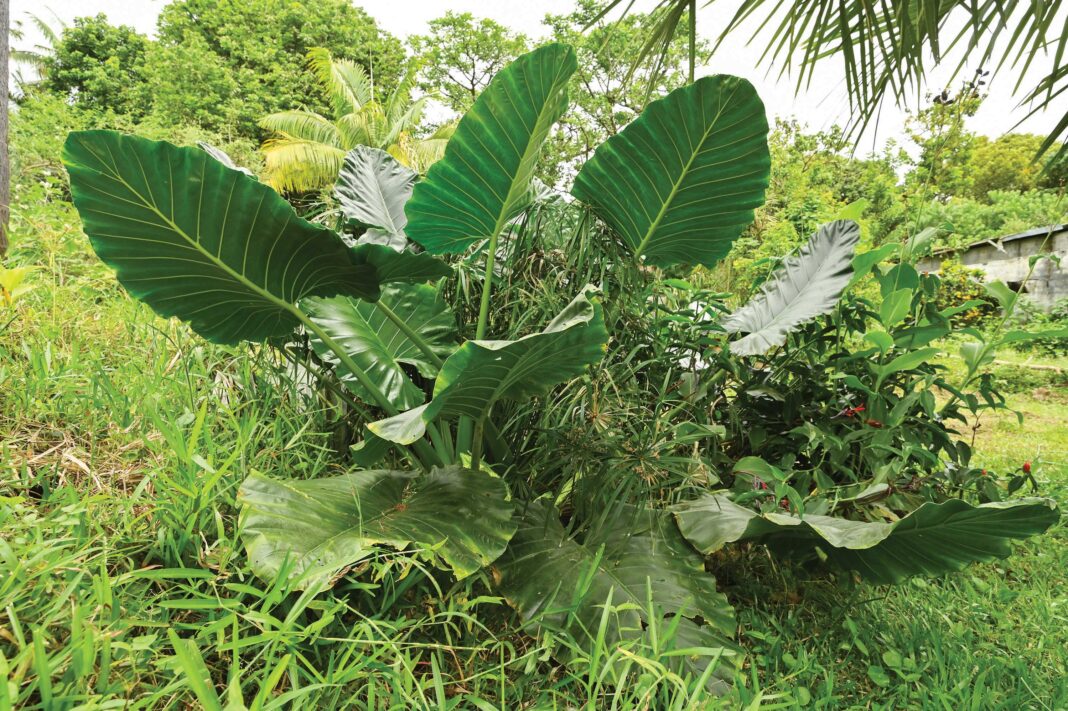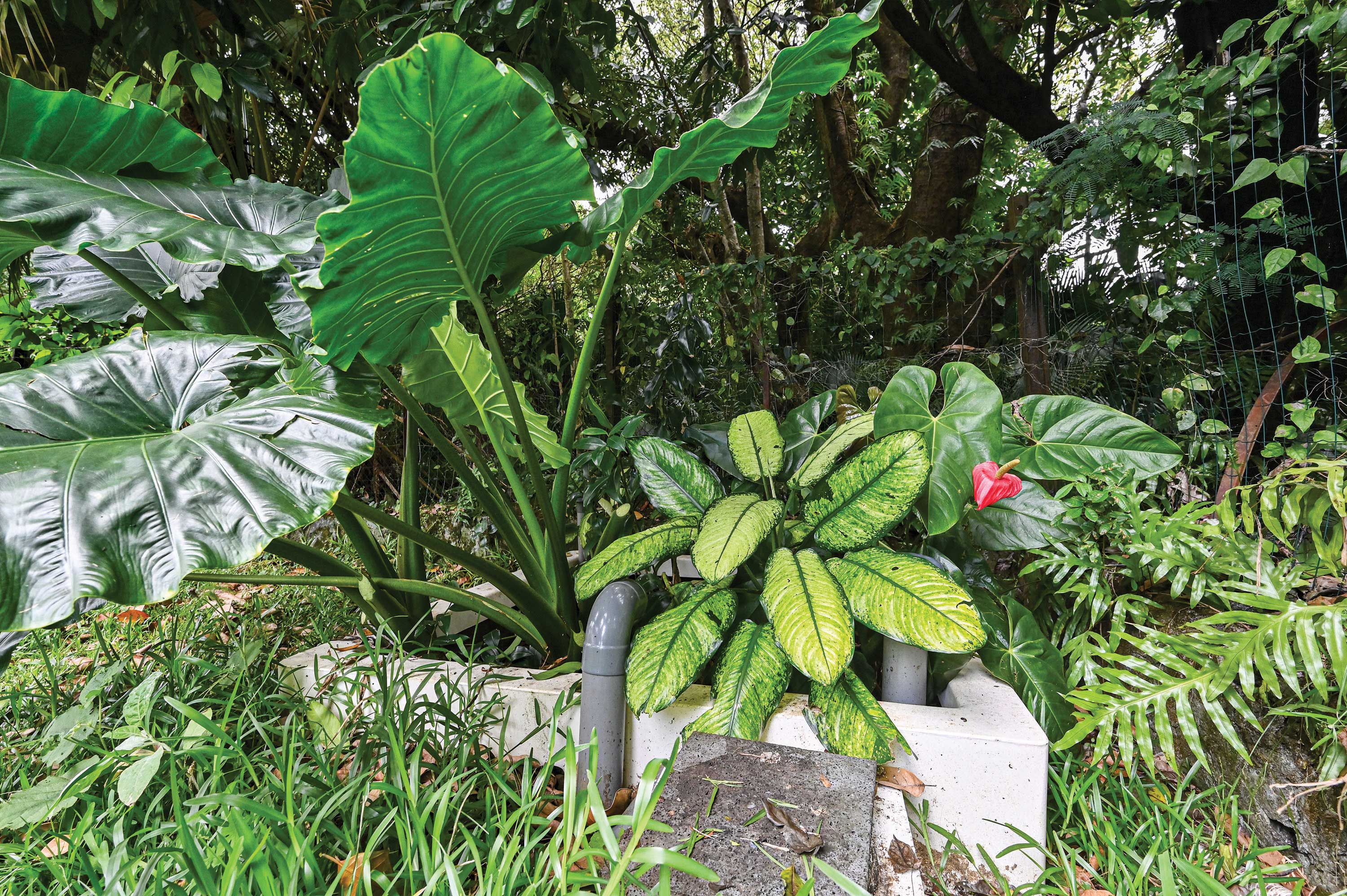Bourbon Composites tropicalizes sanitation through plants. Recycled cardboard will soon be produced in Reunion. First part, with these two examples, new horizons of Reunion innovation. Or how Reunion, by seeking solutions to its problems, can help resolve those of many other territories, in the near Indian Ocean and across the world.
Bourbon Composites revegetates non-collective sanitation (not connected to mains drainage) with a solution of containers planted with tropical plants “made in Reunion Island” which replaces the usual septic tank. Already operational in collective and semi-collective (structures housing more than twenty people), as well as for industrial and agricultural installations, sanitation by plants of the Benedictine company will be, courant 2024, for individual dwellings not connected to a network : between equipment rehabilitation and new construction, the individual non-collective sanitation market is estimated at 180,000 units. Produced by the Scientific and Technical Building Center (CSTB), a final trial lasting one year is underway at the Saint-Benoît STEP : it must definitely validate the tropical plant-based solution designed by Bourbon Composites. This validation will allow the company to obtain ministerial approval authorizing it to market its solution to individuals.. The Reunion manufacturer of resin and fiberglass products – including septic tanks – opens a new field for its activity.
Everything is made locally
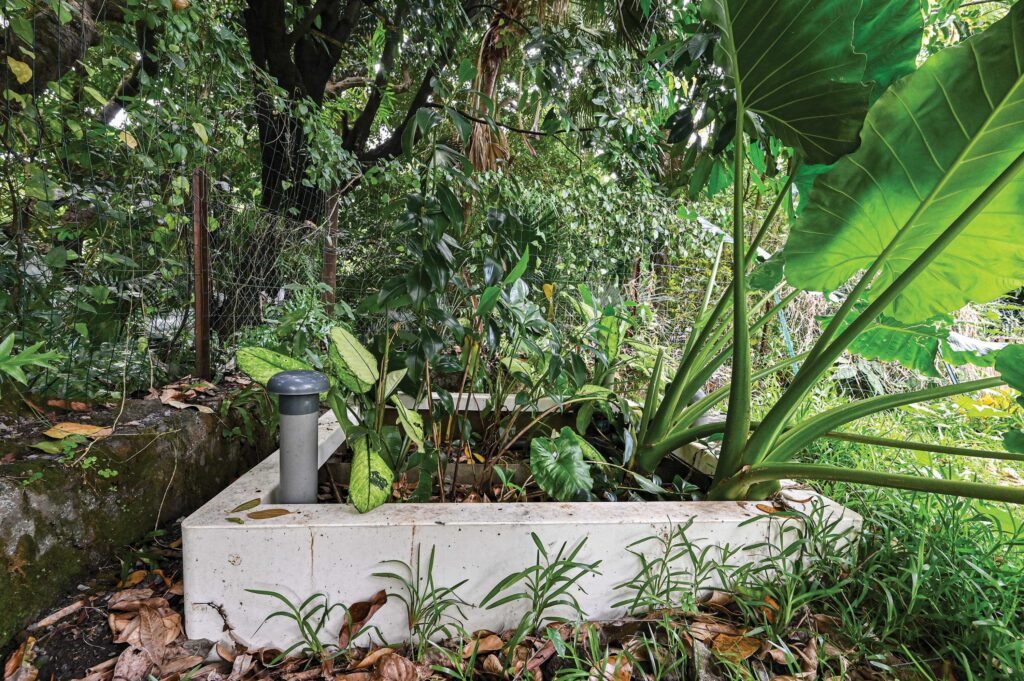
Plant-based sanitation is a proven wastewater treatment technique in temperate zones.. In a city, the National Research Institute for Agriculture, food and the environment (INRAE), with which the Reunion company collaborated, has recognized expertise in this field. Closer to us, Sanitation using plants has been practiced in Mayotte since 2006 in collective housing groups.. Reunion innovation lies in tropicalization and wider application of the process. It required five years of research and development to arrive at the carefully studied choice of locally grown plant species making up the planted filter.. “We didn’t start from nothing, but our solution is even more efficient. Thanks to the tropical climate enjoyed by Reunion, purification by our plants is more effective than a septic tank or a micro-purification plant”, says Cédric Gonneau, environmental engineer specializing in phytopurification recruited by Bourbon Composites to design and carry out this project. A new entity was created for its operation : Nature'OPure. Between the plants grown in Reunion and the container made in Saint-Benoît, the solution is totally Reunionese.
An ecological and economical solution
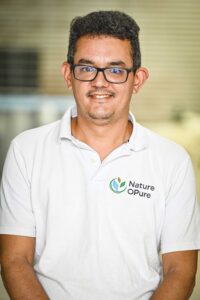
manager of Nature O’Pure
Visually, the planted filter is indistinguishable from an ordinary garden bed. “It’s a plant bed inside a container. Its dimension varies depending on the size and sanitation needs of the site, evaluated from the user name. The water arrives naturally by gravitation at the level of the treatment zone. Bacteria do their job of breaking down organic matter like they did in a septic tank. We can't see what's happening under the plants and we can't smell anything. » In addition to its ecological value, the process requires less space than a septic tank and no maintenance. “The plant solution is more compact. It complies with sanitation regulations without the need for a safety spreading surface unlike the septic tank”, explains Cédric Gonneau. No need for emptying anymore : maintenance is limited to a simple gesture from the gardener from time to time to prune the flowerbed, cut off yellowed stems. There is nothing to replant : plants regenerate themselves. Which also means free maintenance : no product to buy, no repairs or defective parts to replace. “In addition to a competitive price of the tank compared to the septic tank, this lack of maintenance makes the difference in terms of cost price”, judge Cédric Gonneau.
The business sanitation market
The project was certified by Qualitropic in 2019, which opened to him, among others, the doors of INRAE. More than 200 plant species have been tested. Five were selected. “Local plants, produced in Reunion and available all year round”, describes Cédric Gonneau. Around twenty tests, 95% positive, validated the formula. For this new kind of supply, Bourbon Composite works with horticulturists. The first project concerns the sanitation of wastewater from the dormitories of the Belouve lodge. Nature’OPure’s solution is attracting a lot of interest in the eco-lodge and local hotel industry.. Also among farmers who see it as an ecological means of treating their washing water. Nature’OPure also looks at the market of SMEs not connected to sewerage. To businesses, Cédric Gonneau recalls : “Our solution does not require any security perimeter and it fits into the existing landscape. »
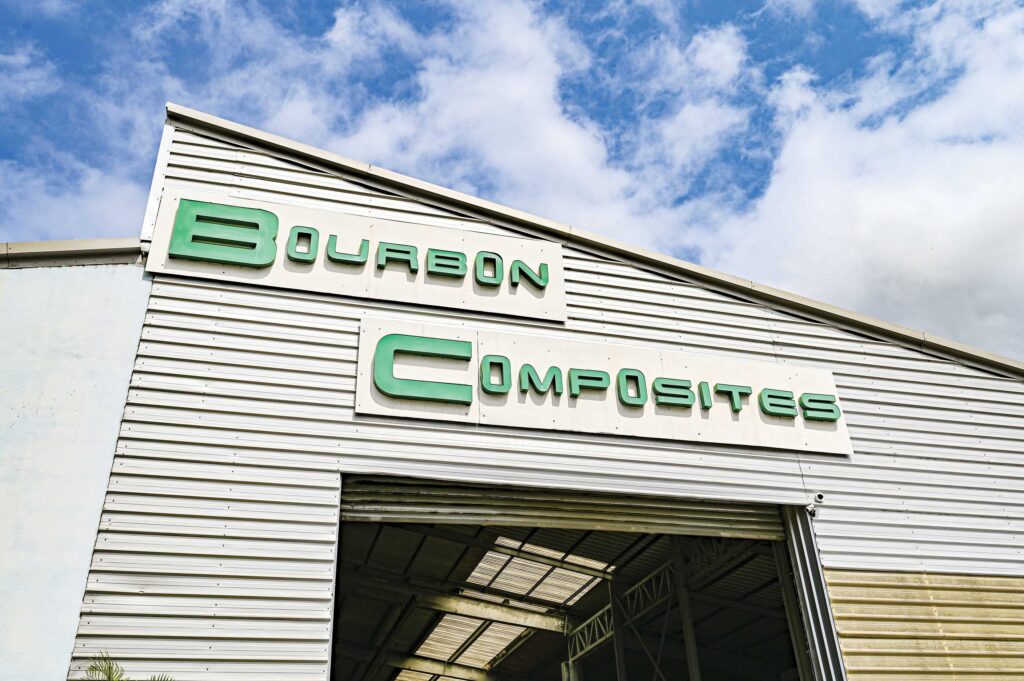
THE FIRST DECENTRALIZED TEST OF THE CSTB
This is the first time that the CSTB has agreed to conduct a certification test outside of its Nantes testing platform.. Like any process related to building, Nature’OPure’s phytopurification solution requires technical approval from the CSTB. The use of tropical plants makes testing impossible in mainland France, it is made in Reunion.


